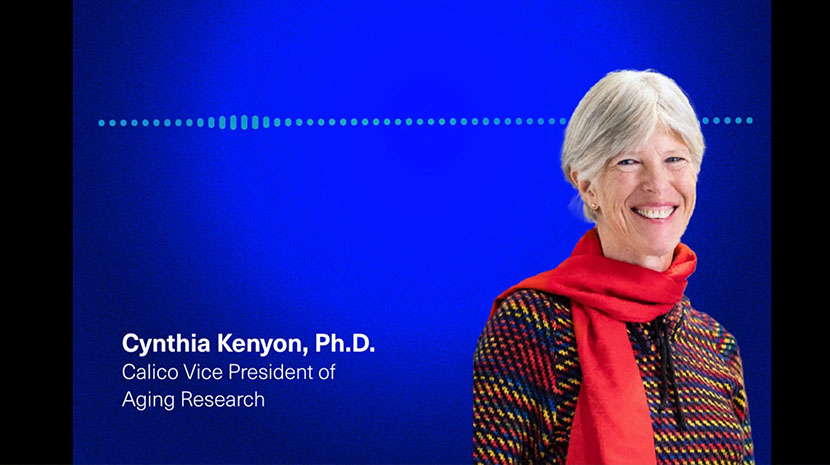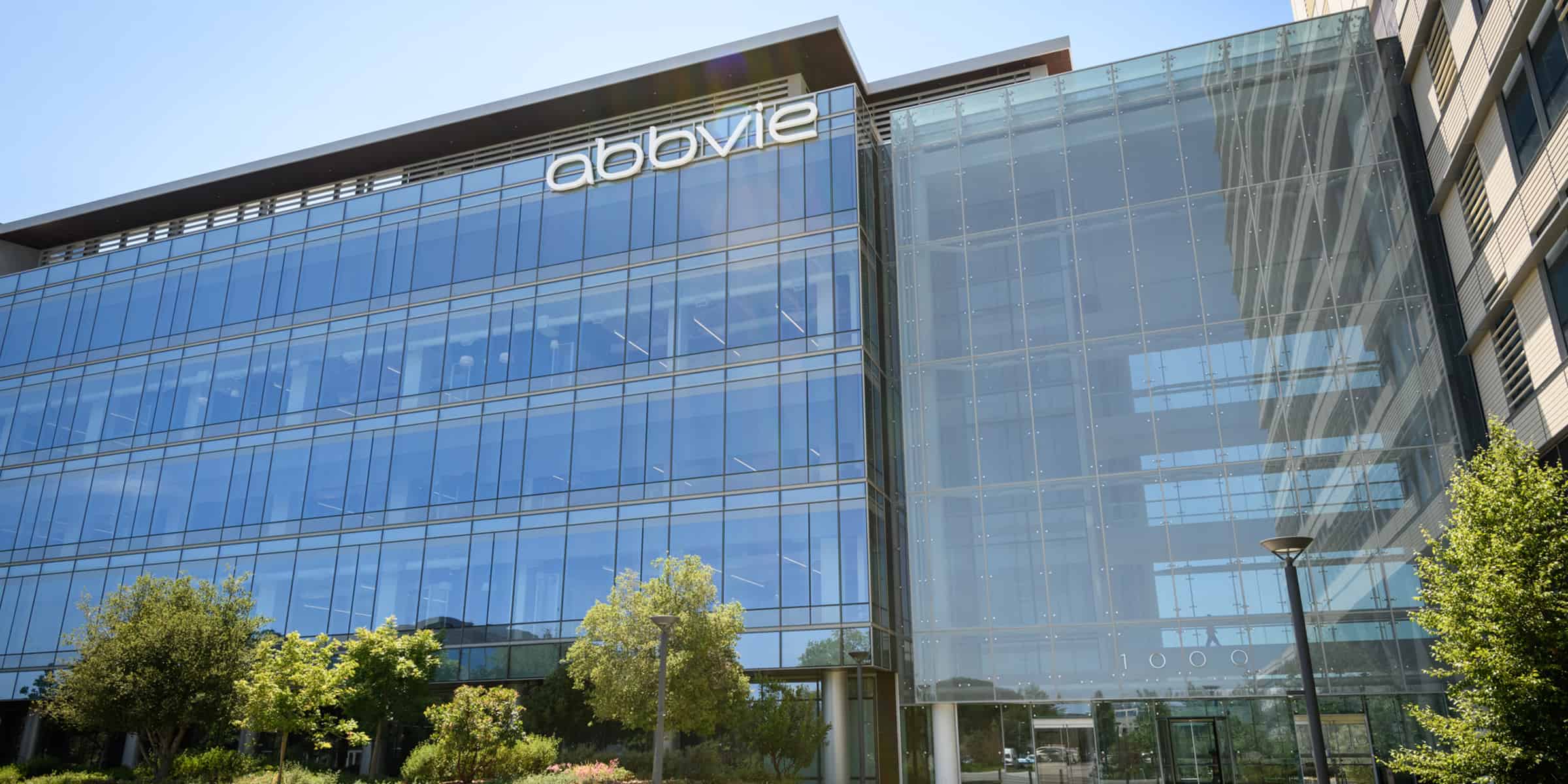Calico Vice President of Aging Research on the science of aging
Inside the Biology of Aging: How Do Scientists Tackle a Planet-wide Diagnosis?
See how the AbbVie-Calico Life Sciences collaboration turns the traditional partnership upside down to tackle age-related diseases.
The giant tortoise can roam the Earth for over 150 years.
Whales, the longest living mammals, pass two centuries without a second thought.
The oldest known freshwater mussel celebrated 280 birthdays.
But what about humans? What makes our cells and genes different? Why are we more susceptible to afflictions like cancer, heart disease or neurodegenerative disorders as we age?
These are the questions that over 500 scientists are working to answer as part of an ongoing collaboration between AbbVie and Calico Life Sciences focused on aging, a dominant risk factor for many of the world’s most prevalent diseases.
The goal isn’t to make humans live as long as whales, but to unearth fresh insights into the biology of human aging that lead to the discovery and development of new treatments for a maturing population around the globe. Projections show the number of people living past 80 will increase threefold from now until 2050, according to United Nations data. With an increase in age comes a jump in the risk for chronic, progressive diseases that can affect physical and cognitive abilities.
Aging: A disease with 100% prevalence
Collaborations among pharma, biotech and academic institutes are not uncommon, but typically they’re focused on a certain disease group or therapeutic area, like immunology or oncology.
An element that makes the AbbVie-Calico partnership unique is an open runway for scientists: Explore, try new experiments, fail, learn, then try again – maybe in a completely different way. Scientists in the partnership are driven by the mission to help understand what makes us age and how to harness these lessons to improve the quality of human health and tackle a plethora of diseases: from cancer and Parkinson’s Disease to genetic ailments and rare conditions.
The approach has paid off. Established in 2014 and recently extended through 2030, this collaboration has created more than 20 early-stage drug development programs across disease areas including immuno-oncology and neurodegeneration, with three of these programs now in clinical trials. In 2022, the team continues its pursuit of both existing and newly discovered therapeutic targets.
“Maintaining health as we age is an urgent new frontier for our industry, and 7 years ago we launched a collaboration focused on discovery research to tackle just that,” says Tom Hudson, M.D., AbbVie’s senior vice president, R&D, and chief scientific officer. “What we’ve uncovered is a path to first-in-class medicines to help people living with devastating and potentially life-threatening diseases.”
Why our partnership is designed to be different
The unique design of this partnership leverages complementary strengths. Calico, which was founded by Alphabet together with CEO Art Levinson, Ph.D., focuses on discovery-stage research and development made possible by advanced technology and computing capabilities.
“By following the science we create opportunities for new discoveries that allow us to advance the study of human aging as well as identify new therapeutic targets,” says Aarif Khakoo, M.D., Calico head of development and chief medical officer. “Combining this with support from AbbVie, and access to their expertise in many facets of innovative drug development, is essential in achieving our ambitious goal to develop therapies that enable people to lead longer and healthier lives.”
AbbVie’s discovery and development expertise, coupled with Calico’s research and technological prowess, drives preclinical and clinical programs, with flexibility for scientists to explore as a hallmark of the collaboration, according to Gerry Fox, Ph.D., vice president, discovery & early development, and AbbVie partnership lead.
“Our disease-agnostic approach, driven by our study of aging biology, has led the joint team to mechanisms we believe are important across a range of diseases including cancer, neurologic disorders and tissue homeostasis disorders like heart and renal disease and diabetes,” Fox says.
For instance, a deeper look at protein synthesis in brain cells under stress, specifically the accumulation of misfolded protein aggregates found in some neurodegenerative disorders, led the team to advance an approach to counteract this stress and help eliminate these misfolded proteins. Today, a potential treatment using this science is now in clinical trials for people with amyotrophic lateral sclerosis (ALS).
“We didn’t start out with ALS in mind, but this is where the biology led us,” Fox says. “Many of the targets we’re pursuing can seem very difficult or even ‘undruggable,’ but that’s when the scientists step up with disruptive thinking and technologies.”
‘I realized that I could actually make medicines’
One such scientist is Cynthia Kenyon, Ph.D., a leader in molecular biology and Calico’s vice president of aging research. When many thought aging “just happened,” Kenyon hypothesized scientists could control lifespan by changing genes – after all, she reasoned, that’s what evolution did. In the early 1990s, working in her lab at University of California, San Francisco (UCSF), she and her team were able to demonstrate this theory. They doubled the lifespan of a small roundworm called C. elegans after partially inhibiting a gene that allows cells to respond to hormones that control growth and resiliency.
“When I joined Calico in 2014 I thought I would direct research on aging in my lab, and help educate the community about the logic and mechanistic regulation of aging,” Kenyon says. “But when I got here I realized that I could actually make medicines.”
Fast forward to today and AbbVie-Calico teams are dedicated to the different biological processes that impact aging, from inflammation to hormone levels to stress response. The research is purposeful, Kenyon says.
“Because so many diseases are linked to aging, interventions that increase healthspan and lifespan in animals often mitigate these diseases,” she says. “As long as there’s an age-related disease associated with the pathway, we can get it into the pipeline and aim to benefit both specific patient groups and then maybe, ultimately improve quality of life for everyone.”
Media Inquiries:
Email: [email protected]


